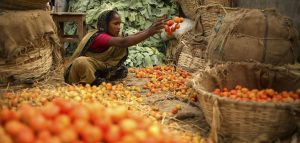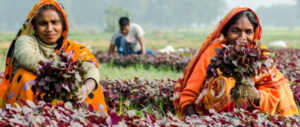Invest in Women: Accelerate Progress
This year, on International Women’s Day, UN Women has issued a call to “Invest in women: Accelerate progress.” Research on gender and women's empowerment in food systems and global development is central to IFPRI's mission. This includes projects, studies and partnerships across the South Asian region such as the following:
Impact of marriage timing on women's agency

In rural Bangladesh the age at which women marry affects their standing in the husband’s family, influencing their empowerment in the spousal household in domestic and productive spheres. Read the paper
Cash transfers and intimate partner violence

There has been increasing interest from global stakeholders in the relationship between cash transfers and gender-based violence, and in particular, intimate partner violence in low- and middle-income countries. Read the paper
Women’s Empowerment Metric for National Statistical Systems

The WEMNS tool measures women’s empowerment, intended for use in large-scale, multitopic surveys conducted by national statistical systems. It complements WEAI tool which focuses on agricultural households. About the index
Women's agency in choosing assets
In the long history of public works programs, there has been limited research on how assets created under such workfare programs are selected, or how to increase the role of women in the decision-making. Read the paper
Investing in women livestock advisers

One of the nine featured case studies is one from Jharkhand. This case explores investment in developing the human capital of women livestock farmers as as certified master trainers… Read the report
Women’s Empowerment in Agriculture Index

The WEAI tool measures women’s empowerment in agriculture. This measurement tool helps diagnose areas of disempowerment and design development programs to address those areas. About the index
Responding to the global food crisis

Development agencies are pouring in billions of dollars to address the global food crisis. Without a gender lens, the proposed measures will fail to meet the specific needs of women and girls and might worsen existing gender inequalities. Read the chapter
Gender lens to reduce climate crisis impact

To date, most climate change policies, investments, and interventions remain gender-blind. As a result, they might exacerbate gender inequalities in food systems by, for instance, increasing women’s labor burden and…Read the blogpost
Gender and intrahousehold dynamics

Good nutrition is important, but supporting healthy diets in practice and at scale involves tackling challenges—cultural, economic, or practical—that often boil down to gender dynamics and other constraints facing families. Read the blogpost
Achieving nutrition and gender equality goals through agriculture

Nutrition-sensitive agriculture programs are one way agriculture can contribute to achieving our global nutrition goals with the potential to help meet other critical development objectives, specifically women’s empowerment and shifting… Read the brief
Sowing the seeds of resilience: A case study from Bangladesh

Tahera Begum is one of the four farmers in her village of mostly smallholder potato growers to adopt strip-planting technology—a type of precision planting that consists…Read the blogpost
Breastfeeding: crucially important, but increasingly challenged

Breastfeeding is not the sole responsibility of women and requires collective societal approaches that take gender inequities into consideration. This Series paper, examines how mother and baby attributes…Read the paper




